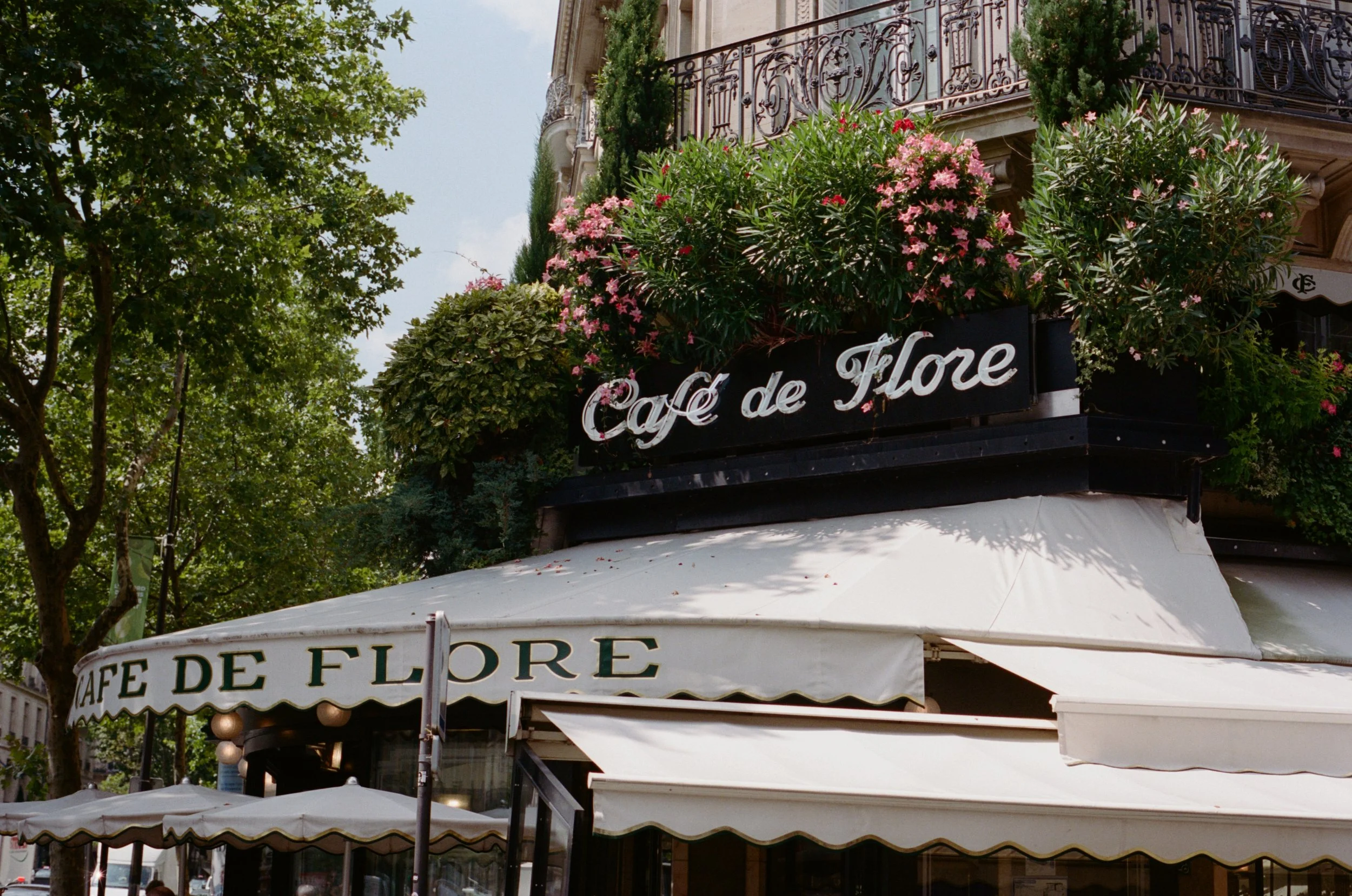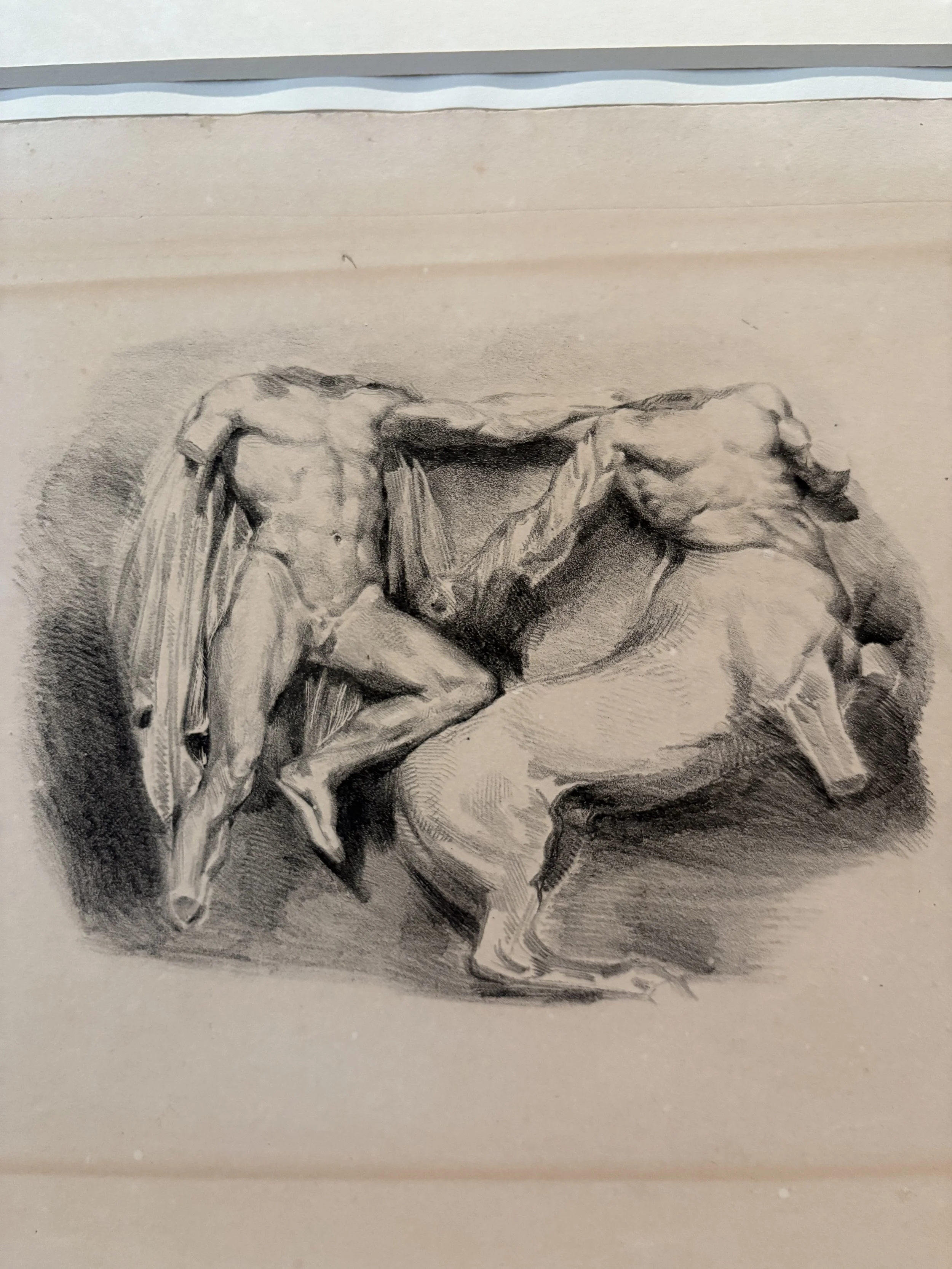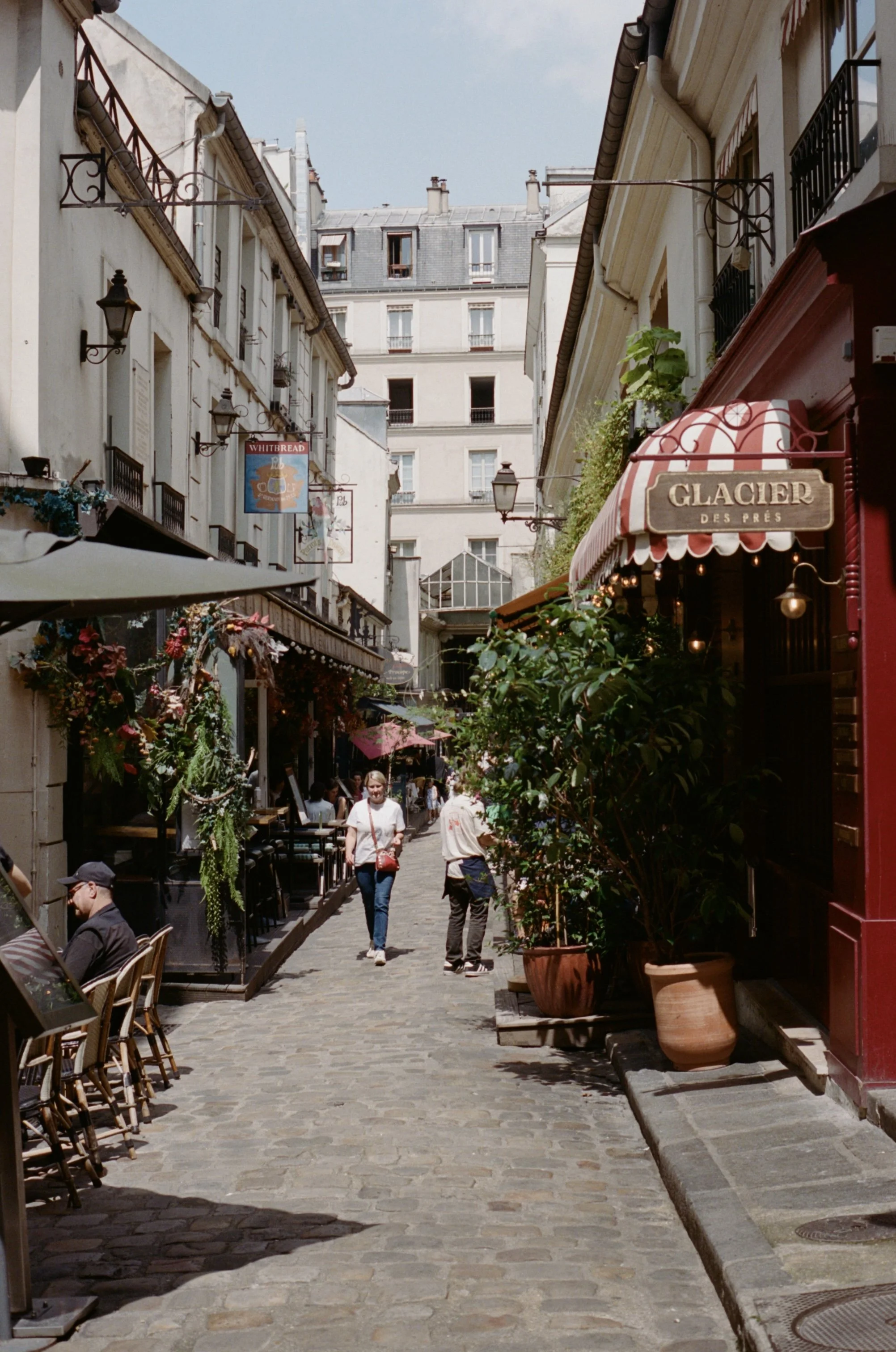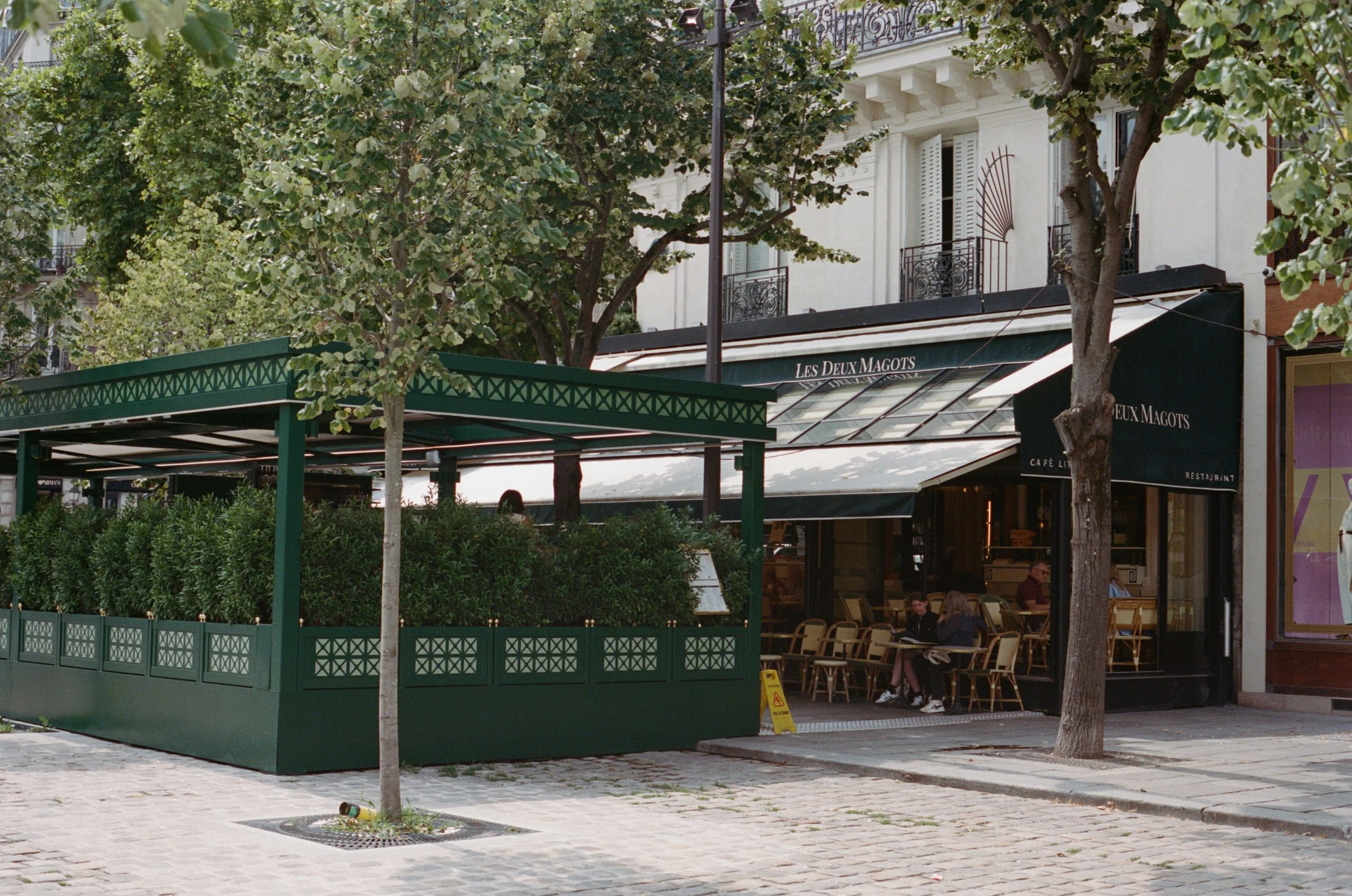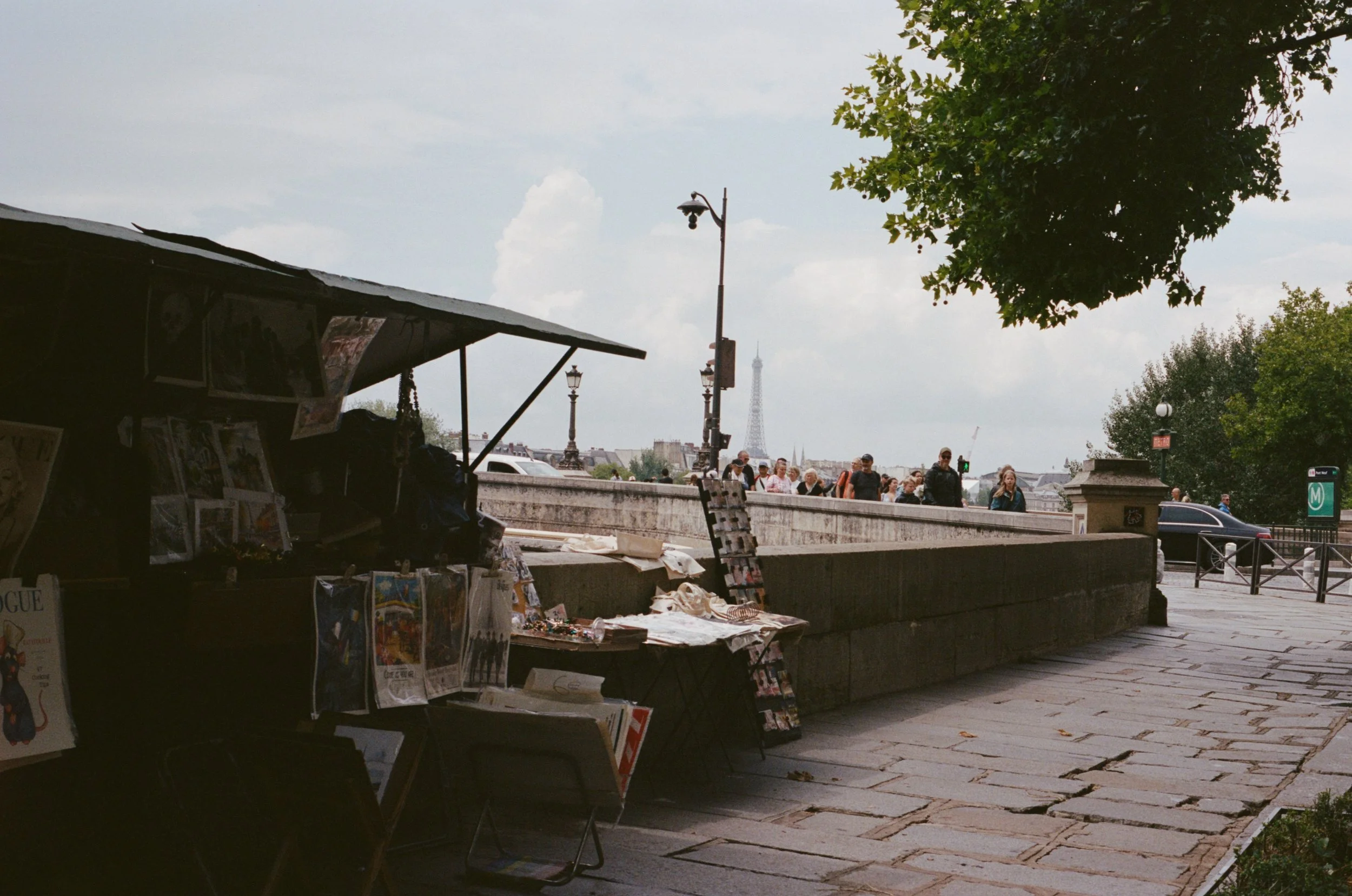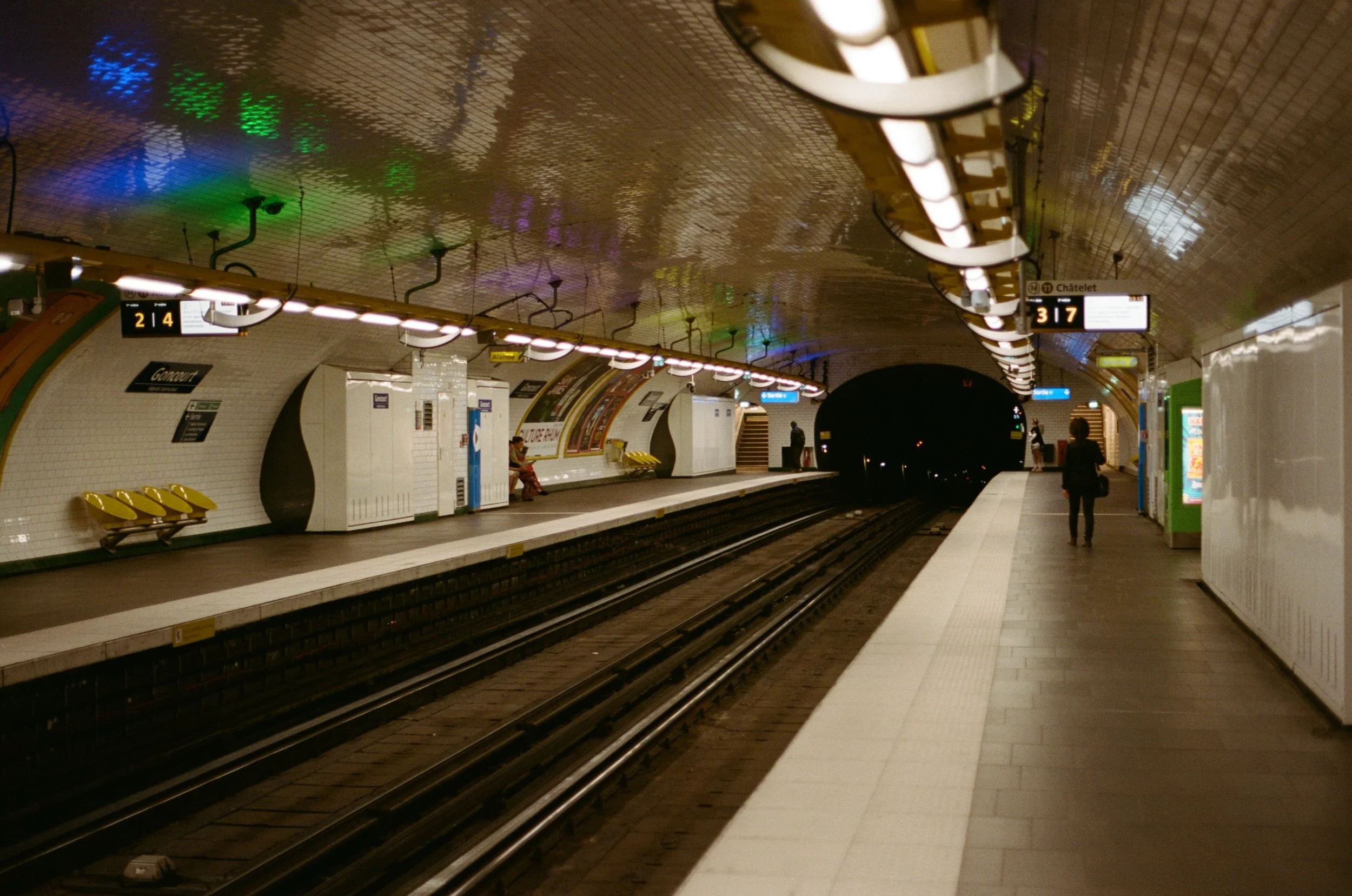Café de Flor, on 35mm
“If I had to write a book on morality, it would have a hundred pages and ninety-nine would be blank. On the last page I should write: ‘I recognize only one duty, and that is to love’”
When did the day start? When the clock struck midnight? When the sun finally peaked over the Parisian skyline? Perhaps it started when I officially rolled out of bed? Certainly that’s not the case, for my day doesn't start until I’ve had my first cup of coffee, at least.
A sketch by Eugène Delacroix, in his home now turned museum
Whatever, to hell with the question and the entirety of the socratic method, I was never good at all the existential stuff anyways. I’m good at asking questions, but I’m even better at answering them. That's why I was never cut out to be a philosopher, the philosophical loop of thinking yourself into a hole (or, if you're Nietzsche, into an asylum) just doesn't cut it for me. This is quite ironic, though, since philosophy is a big part of my major and since philosophy was inherently responsible for dragging me back into academia.
Parisian alley that leads to a passage in St-Germain, on 35mm
Credit where credit is due, philosophy wasn't the only thing calling me back, just the most prominent. During my time in service I acquired a peculiar taste of inspiration through the humanities at large – philosophy, history, literature, art, poetry, the list continues. You really have to try to cultivate inspiration when you’re in a desert thousands of miles away from everything you love. All of this to say that Paris was inevitable. At this chapter in my life I can say I've loved Paris for years, but this trip was different. From the novels we read before arriving, to the essential museums (Louvre and Orsay at a minimum), to the of houses of Victor Hugo and Eugène Delacroix, and the Bohemia that floats in the air of Pigalle, and of course the art Nouveau ornamenting every street corner… to finally, the café district of St Germain. This time Paris truly captivated my imagination.
Back to the question at hand, I was on my third cup of coffee so the day was in full swing by any metric. All great parisian stories start or end at a cafe. There I sat on the sunny street corner just below the big bold letters “Café de Flor,” the café of the existentialist. My favorite philosopher, Albert Camus, French-Algerian by birth but Parisian by raw spirit, used to frequent this very café. His origins lay in existentialism before developing his own philosophy, absurdism. There is an abundance of stories of long lost days, stories of him and the existential gang loitering with nothing in mind but coffee, debating, and philosophizing (at that rate, everything was probably on their mind). Camus had undoubtedly proven Jean Paul-Satre wrong many-a-time below this very ceiling, and that made me crack a smile as I recalled it. I was following in his footsteps, trying to put myself in his shoes, indeed that is what bookpacking is all about. So I was happy to do it on my afternoon off, especially for a person who was so influential in my life and way of thought.
Camus never expected the world to make sense – in fact he knew it never would. Yet through it all he still showed up, he still stood tall. He wrote, he fought, he loved. I can say with pure honesty that his idea of a quiet, daily defiance is one that has resonated with me through both of the darkest and brightest chapters of my life.
It was absurd, how good the climate was. A light breeze and open sky are perfect conditions to let the mind wander. However, I hadn't come here to think, I had come here to enjoy my time, to soak up the atmosphere. No deadline, no agenda, no place to be. In fact, I didn't hardly think at all. Instead, I spent my time partaking in the national pastime of France: people watching. Quietly I sat alone at the small round table with a fresh cup of coffee and relished being the only audience member in the performing arts center that is Bd Saint-Germain. My own little church of the absurd right off of the street.
I took my time with my sandwich when it finally arrived. Good but overpriced, just as most all nice things are these days, besides feelings. At least feelings remain free of charge I thought. I paid my bill and headed east with no particular plan or urgency. Along my route I passed Hemingway's favorite café, Les Deux Magots. Another one of my most profound inspirations, a man who didn't even try to write, he just bleed from the fingertips with it. Most of my inspirations, unfortunately, are of that counter culture, bohemian, beat style. I wish I could articulate why that’s the case but all I know is that I find comfort in the work of those types. To my mothers horror I have always been drawn to the edges of either comfort or chaos.
Hemingways Café, on 35mm
“If you are lucky enough to have lived in Paris as a young man, then wherever you go for the rest of your life, it stays with you, for Paris is a moveable feast.”
I continued leisurely on my journey. I was a flâneur, a uniquely Parisian style of loitering, loitering beautifully. Shamelessly wandering through the maze of streets, observing whatever the city is graceful enough to bless you with. It's not particularly about where you go or what you see, just how it all makes you feel. It was what Edmund White coined as an “eminently Parisian compromise between laziness and activity.” My goal was to seek inspiration without seeking at all – just by walking and paying attention. The streets of Paris ask no questions, so neither did I.
I wandered through cramped alleys, tree-lined boulevards, and even a passage. I truly believe this city will let you in if you just walk slow enough. The Seine glittered as the pigeons scurried along. The old limestone buildings let out their deep and everlasting hum that I was oh-so-familiar with. I passed museums and bookstores and restaurants and trinketshops. I was enthralled by the inexhaustible variety of life that this city offered me.
The Seine, on 35mm
Finally, I looked up and found myself at the Sorbonne, Paris’s premiere university. After such a long walk of taking it all in it suddenly hit me. I could see myself, not as I am, but as I could have been. A young bright-eyed, bushy-tailed flâneur, one with calloused hands and a soft heart. Confidently and slightly drunkenly giving a sermon on left-wing ideology to a table of unimpressed peers at Café de Flor. Sloppily scribbling groundbreaking thoughts into bar napkins and arguing the realities of a revolution with some philosophy dropout who occasionally sells weed behind the Panthéon. Breaking down Camus’s The Myth of Sisyphus again just because I had too much coffee – again. I could see myself checking the time mid-sermon and realizing, shit, I'm late. With a single movement throwing my cash down on the table and dashing out the door and down the boulevard like a mad man, toward the Sorbonne, trying to make it in time for my Art History II lecture on Dadaism. Nothing on my person but an empty wallet, a full head, and a notebook that was somewhere in between.
This city reminds me I am not alone in asking many of my questions. For centuries now great minds have walked these same streets, stared out these same windows, and sat in the same absurd theatre. All drawing the same conclusion: None of this matters, which is why all of it matters.
“Perhaps home is not a place but simply an irrevocable condition.”
I didn't come here looking for a place, I came looking for a condition, funnily enough though I didn't know that until I finally found it. The first time I came as a flâner, and this time as a student. Both times I knew something was waiting for me, and now I've finally put my finger on it.
Paris is more than just a location to me, it's a state of being. I've found my own backstreets and dark corners that make it mine. Even with my outspoken nature and passion for rebellion, this city has room for me. Camus found a crack in the facade that is the world and it led him here, perhaps I’ve found the same one, just decades later.
This was our theatre of the absurd, our little secret.
Parisian metro, on 35mm
